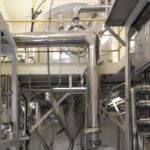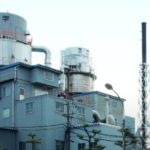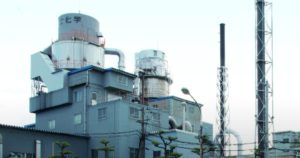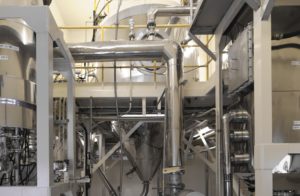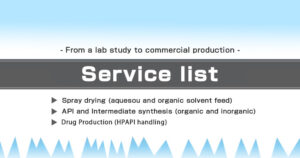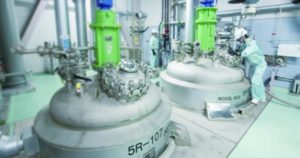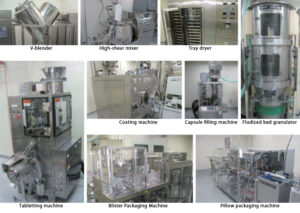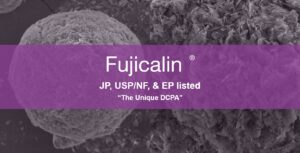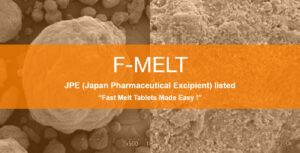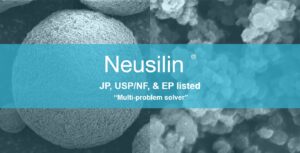Spray drying is the production method dry powders through the rapid drying of aerosolized solutions using hot gas. It is an exceptional way to conduct particle engineering (ex. narrow particle size distribution, particle shape,) and one of the useful production methods of amorphous solid dispersion
Dissolution enhancement of poorly soluble API (closed-loop spray drying using organic solvent)
Closed-cycle spray dryer using nitrogen as the drying gas enable the use of organic solvent, which is used for APIs that are poorly soluble in water.
Particle engineering (open-cycle spray drying with aqueous feed)
Aqueous feed spray-dryer (water is used as a solvent) uses atmospheric air as a drying gas. It can control and engineer powder properties with adjustm.We can meet various processing needs within the area of pharmaceuticals.
Fuji’s Spray Drying Expertise
Since the installation of the first aqueous-feed (open*-loop) spray dryer in 1965, Fuji has not only manufactured its own pharmaceuticals, excipients, and neutraceuticals, but also provided spray-drying processing services to many customers in the pharmaceutical industry.
This service is utilized to meet modern pharmaceutical needs such as solution enhancement or DDS. . In addition, the continuous mass production of the sprary drying enables efficient manufacturing and superb cost performance.
Some of our commercial spray dryer can spray solvents. We are one of the few in the world to have such capabilities. We can support our customers from the early stage of development to commercial production with world-class manufacturing capacity and decades of experience.
Advantages of Our Spray Drying Technology
Fuji Chemical Industries owns two types of spray dryers: an open-loop spray dryer for aqueous feeds and a closed-loop spray dryer for organic solvent feeds. Both can be used for small-scale trial production to a large commercial production to serve yarious needs of our customers.
Hight Versatility
- Almost all types of solvents, slurries and emulsions can be spray dried.
- Homogeneous powders are produced.
- Particle size, bulk density and water (solvent) content can all be controlled directly.
Improved Productivity
- Easily scalable (from pilot to commercial production.)
- Mass and continuous production possible
- Integration of several granulation processes into one process.
- Improvement of compressibility and tabletablity of powders to improve the latter processes
Stability Improvement
- No heat degradation observed for many APIs due to the very short thermal history.
- Stability of API possible
Functionalization
- Bioavailability can be improved
- Controlled releases are feasible
- Bitterness masking through particle engineering is possible

